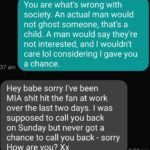h2>Dating : I Wrote Love Letters for a Living
I’m standing on the field of a large sports stadium. The stands are packed with women. They aren’t angry, just disappointed. One by one they look me in the eye and ask one simple question: “Why?” I wake up disturbed and decide it’s time to quit ghostwriting dating emails.
My life as a cut-price Cyrano de Bergerac began with a Craigslist ad. “Creative writers wanted,” it said. I was given a few bullet points about a hypothetical guy (likes eating fresh cut grass and the smell of long walks on the beach, that kind of thing) and four links to the dating profiles of real women on match.com. As a test I had to write what I’d soon learn was called “the opener”, an initial email to break the digital ice.
In the two hours allotted for the test I cobbled together four emails including such gems as: “There’s nothing quite like a day spent on the high seas is there?”, “Looks like you know how to appreciate the great outdoors,” and the immortal, “I am a three-time Hungry Hippos state champion, so I like to play hard myself.”
Remarkably, I got the gig. Now that I was a fully fledged “opener” I could learn the tricks of the trade. I was given in-depth profiles on five guys, including details on their personality and what their preferences were when it came to women. Once I’d read that, I had to trawl the various dating sites looking for women I thought they’d like. This was weird. We’re talking 2009 here, when the online dating world was a more innocent place. No Tinder, no Grindr, just people putting themselves out there in a very genuine way, with quite long and often vulnerable sounding bios. These people had no idea that their words and images were being assessed not only by a potential suitor, but also by a poorly paid hack sat in his bedroom.
The guy would review the women I’d chosen for him and once I had an approved list it was time to write the opening email. During the test I had naively assumed that the key to this was having a sense of humour and demonstrating that you’d actually read the woman’s profile. Turns out I was wrong. The techniques I was advised to use were based on the world of pick-up artists and in particular the book The Game by Neil Strauss.
I couldn’t bring myself to read the book but thanks to my boss I was gradually introduced to a whole new vocabulary of douchebaggery. There was “peacocking” which meant wearing a consciously ludicrous item of clothing just to start a conversation. Peacocking is largely to blame for the increase in fedora sales in the mid-2000s. “Negging” was a key weapon for any opener. As far as I could understand it this involved giving a slightly negative, even bitchy comment, usually to someone who was obviously more attractive. Along the lines of: “You look hot in that dress, but those shoes… really?!” In normal circles it’s also known as being a dick. Finally, I had to be constantly aware of “the power” and more specifically, who had it. Keeping the power meant launching pre-emptive strikes and not showing the remotest sign of weakness, tactics also successfully employed by schoolyard bullies and leading politicians.
While employing these nefarious techniques you had to bear in mind that this was ghostwriting. Whatever you wrote had to be something the guy in question could believably have come up with. Confusing yourself with your guy was an easy trap to fall into, especially if you were writing to someone who shared your personal interests. Let’s say Maxine, like myself, tried to make herself look interesting by reading pretentious existentialist books when she was 17; we can have a great email exchange, but when she meets my guy — let’s call him Derek — in real life, he’s going to be stuck when Camus comes up in conversation.
So what about these guys I was writing for? From what I could understand they were paying top dollar for this service (money which was certainly not trickling down to my lowly position), so why were they doing it? One guy in particular stands out, I’ll call him Roy. He was a widower in his mid to late-40s with two kids. I never met any of these people in person, or even emailed them directly, but Roy seemed like a nice guy who was probably just short on time and confidence. I could see why this kind of thing might appeal to him, although I hoped it was just a short-term solution. Others I was less sure about. “Jeremy”, for example, soon moved beyond the established dating sites to places like sugardaddy.com where the vibe was distinctly more carnal.
In my year of digital deceit I never heard of any silver linings — no long-term relationships, or marriages which were initiated by a humble opener high on the power and negging as if his life depended on it. I know dates happened, but the whole pick up artist technique which we relied upon seems designed to leave it at just that, the pick up. Making yourself out as someone you’re not, whether it’s through a zany hat or deliberately being more of a dick than you already are, doesn’t seem to be the foundation for going steady. But maybe that was never their intention, maybe it was a casual thing for all of them.
Considering I was very much an accomplice to this fraud I’m the last one to pass judgement. In fact judgement was the one thing I was looking for. People were generally too fascinated by the whole bizarre operation to question whether this was really an appropriate way for me to earn a living. But when the women in my dream stadium glared their disapproval in my direction and asked me why I was doing this, I had the judgement I’d been looking for. After over a thousand passive aggressive emails sent on behalf of men I’d never met to women who didn’t even know I existed, I had written my last opener.



